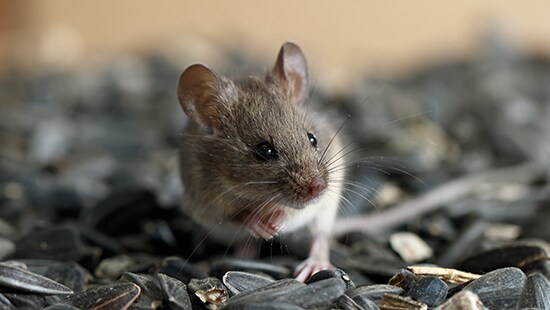COVID-19 Increases Typical Rodent Season Challenges
The Pest Monitor

As the weather cools during the fall and winter seasons, food businesses are typically faced with increased rodent pressures. This is particularly true for food processing and manufacturing facilities where rodents are able to fulfill all their base needs: food, water, and shelter. And just as 2020 has brought increased challenges in other areas due to the COVID-19 pandemic, it has also increased the typical seasonal pressures of both rats and mice.
As explained by CDC, rodents which had previously relied on the food or waste from COVID-closed or limited-service food establishments had to seek sustenance elsewhere. And with the weather making outdoor survival less conducive, rodents are moving outside their normal ranges of activity and being seen in areas which had not previously had problems. As seen in online media – and social media – posts, jurisdictions and pest management providers from Boston to Abilene to the California Bay Area have been reporting surges in rodent sightings.
Regardless of whether the increased rodent pressure in your area is due to the weather, the pandemic, or both, one of the best ways to keep rodents from entering your facility is to eliminate the exterior conditions that attract them in the first place.
Rodent Survival. Mitigate conditions that enable, or even enhance the abilities for rodents to survive and breed around your food facility through the following recommendations:
- Food and water. We may call it waste and garbage, but to a rodent your trash is a veritable buffet. Additionally, exterior drips and puddles around your property can provide all the water a rat or mouse needs for survival. Keep rodents from dining at your facility by keeping garbage areas cleaned, all containers tightly lidded, and the property well-drained.
- Harborage. A pile of leaves, mulch, or other ground cover near your buildings can keep a rodent family warm and in close proximity to food and water. Have leaves raked before they can pile up or become organic matter; opt for rocks over mulch near structures; and maintain a three-foot-wide, weed- and plant-free perimeter around the facility.
- Entry points. A food facility will inevitably emit odors attractive to rodents, and while rodents have poor vision, they have a great sense of smell. So it is critical that all potential entry points be shored up. This includes gaps under doors and around wires and pipes, unscreened vents, gaps in eaves, and even rooftop openings.
Monitoring. Whenever societal or environmental norms are disrupted, the entire ecosystem can be impacted, including the populations, behaviors, and survival tactics of rodents. Whether this is, again, caused by the seasonal disruptions of weather or more unprecedented occurrences, such as those of the pandemic, the monitoring of pest activity, particularly that of rodents, becomes extremely critical.
As CDC further states, an initial decline in rodent populations can often be followed by an increase as commercial and other activity returns to normal. As such, continual monitoring of rodent activity will help to reveal indicators for any needed redesign, development, and deployment of effective rodent management strategies.
As we’ve seen throughout the year, many aspects of the fall and winter of 2020 are likely to be unlike any before. But there are some facets of life that continue on with at least a semblance of normal, one of which is the seasonal aspects in rodent behavior – their increased need and search for food, water, and shelter which are no longer as easily found in nature.
While many areas are facing greater rodent populations than before, the general uptick in fall and winter rodent pressure is typical of the season for experienced pest management service specialists. They understand why the rodents are increasingly seeking shelter and are knowledgeable about both preventing their entry and eliminating those that slip by.
So even if you are in or near Boston, Abilene, the Bay Area – or any other area that is making the news, your product, facility, and business can be protected from rodent intrusion – and the regulatory and reputational issues that could result.


